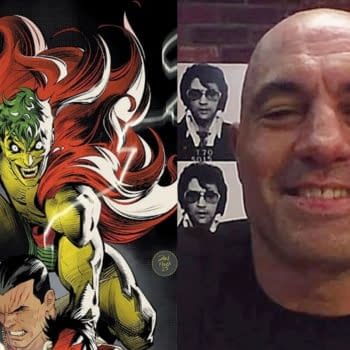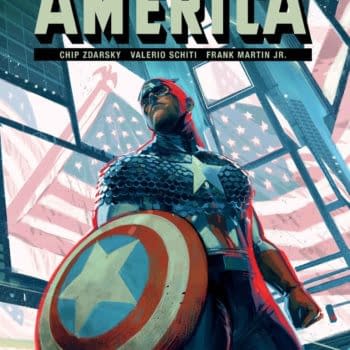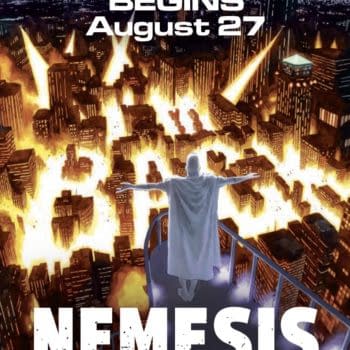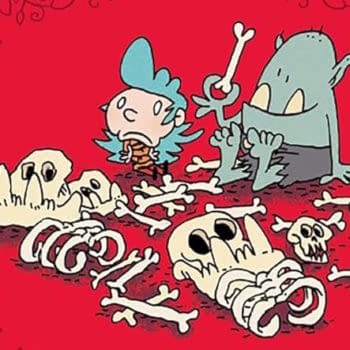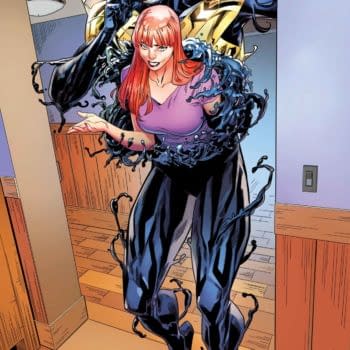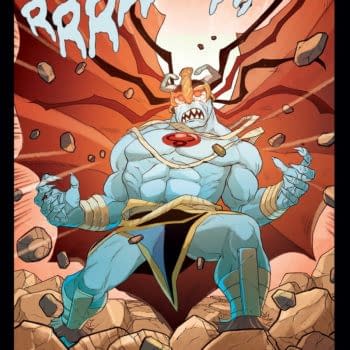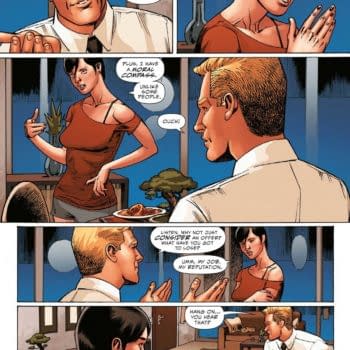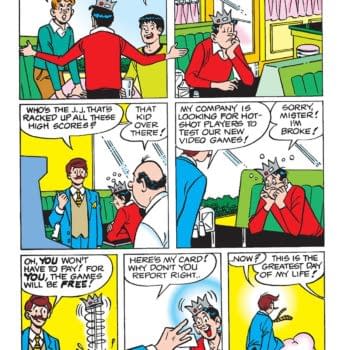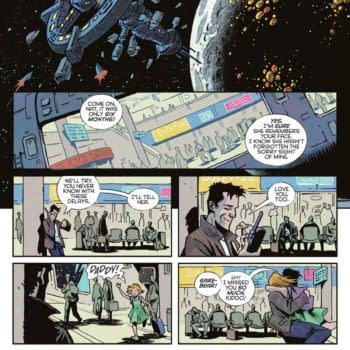Posted in: Comics | Tagged: c2e2, Comics, kickstarter
C2E2: The Kickstarter Panel – Turning It Into A Living
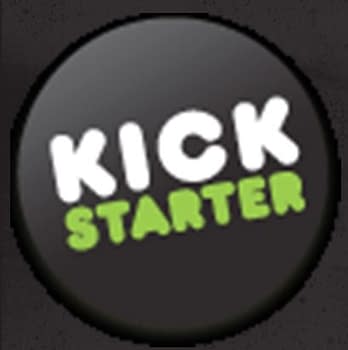
The panel on the social networking fundraising system that has fuelled the hopes and dreams of many a comic creator got off to a shaky start, in that panelist Matt Forebeck wasn't able to attend, but fellow panelists Will Hindmarch and Kenneth Hite tried to make up for his abscence.
Will Hindmarch tolds us about some of his past work which includes Dragon Age, that he's edited several books and put out one through Kickstarter.
Kenneth then tells us some of Matt's accolades and how he has Kickstarted six novels, with an additional six to follow (one a month for a year, funded by Kickstarter).
Will told us how Matt had several ideas for books but wasn't sure how well they would be received. He used Kickstarter as an interest barometer and is now using Kickstarter for the Dinocalypse set of books, a pulp series about psychic dinosaurs (Brian Clevinger of Atomic-Robo fame is also a part of the series) ), as well as having others in the pipeline, one of which is similar to John Carter of Mars, and another of which features a talking gorilla.
Will then said that Kickstarter is just another option for freelancers, letting them see what interest there is in there work, and then producing the work if enough like their stuff. Kenneth says that it allows creators to determine if people are buying their stuff because it has Marvel in the title, or because it has the creators name attached.
Kenneth then stated that as a freelancer you should follow Asimov's law: Don't quit your day job, and the corollary, don't let your wife quit her day job. Will talked about the impirtance of when you have sufficient work, being able to say no to offers. Of knowing your limits and how saying no is better than burning bridges by accepting offers and then doing terrible work or missing deadlines (Great advice).
On to the questions and answers!
How do you get started as a freelancer?
Kenneth: I knew a game publisher. He said that either you know a guy or you do good work and people notice. 3 principles: Don't burn your bridges, do good work, and get stuff in on time.
Will: Use individual websites for publications and magazines, follow their submission guidelines. He talked about how he pitched to get in, but you need to learn how to pitch and what to pitch, for each individual company. Having an online presence where people can go to see your work is also important. The anxiety and stress of pitching is something that you'll have to get used to and just keep going through it.
Any suggestions for improving your comics writing?
Kenneth : Write a lot of comics, even if just for yourself to get used to the form and flow. Also read comics to figure out how they work. Read both the finished project, but also the scripts.
Will: Ask someone if they can understand your comics scripts, your friend is good, but an artist is best in order to see if your scripts make sense. An individual voice comes over time, got to work at it.
What rewards have you done to make your Kickstarter successful and any suggestions?
Will: Set various reward levels, low to high. Reward was a handbound book for 11 donators. You can't change reward levels afterward. Find demand, fill the demand. Be willing to talk to people about material, put up high level rewards. Be ready to deliver on rewards. Simple reward levels, people shouldn't be having to take post-it notes on the levels. Will talks about the difference between backers levels, where a person donates a certain amount and they get a reward, and stretch levels, where if a certain number is met, everyone benefits.
Kenneth cut in with a funny joke about how if someone tries to get a trilogy published but only has money for two books to put the protagonist in carbonite and tell people, "this is your fault. No money, no ending."
How do you break into regular comic shops?
Kenneth: You can get into retail by putting a backer level in that's too expensive for an individual that a retailer can then purchase. Send the book to Diamond so they can see it's merits on their own.
How do you deal with someone asking (yourself too) if writing is your hobby or career?
Will: I drink a lot. I go on Twitter and lament!
How do you protect your work?
Will: Short version, if your name is on it, that's very easy to prove that you wrote it first. Very few people are willing to steal, fewer are willing to take credit for your work.
Kenneth : Career plagiarists are like astronauts. They exist but are rare. Publishers will rarely (if ever) steal from writers, because that means that the writers will not produce work for them again, which means that they will make less money in the long run.
Had to leave the panel early at 3: 26 in order to make it to Dark Horse. Onward!







